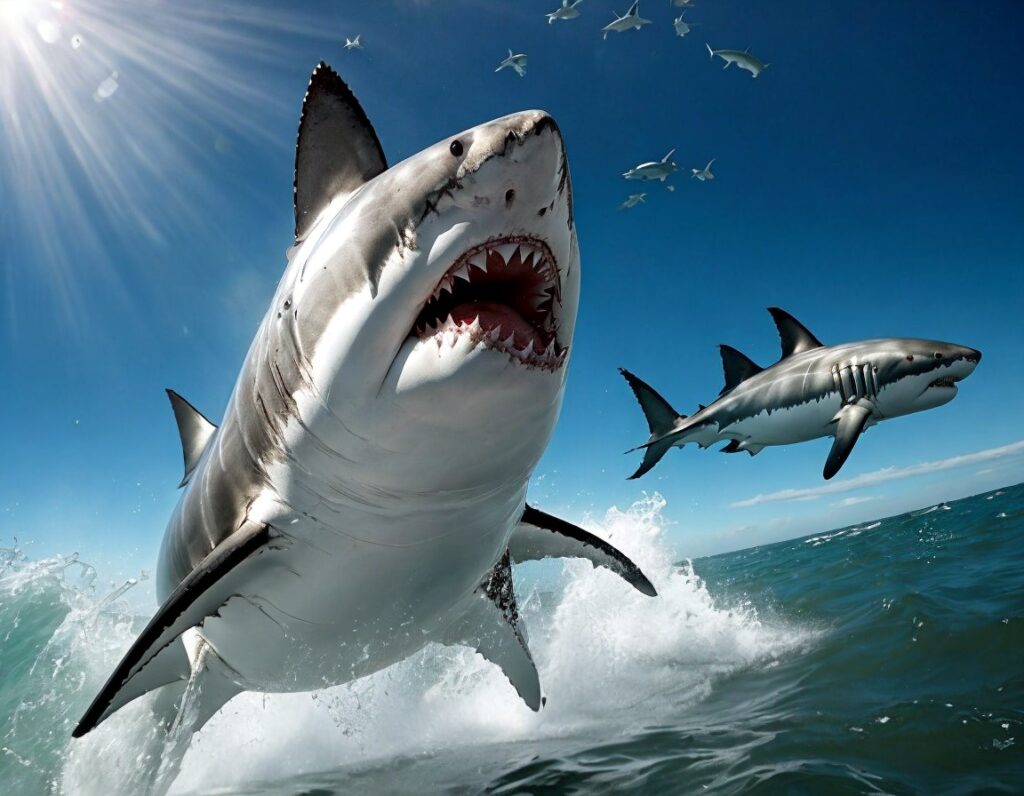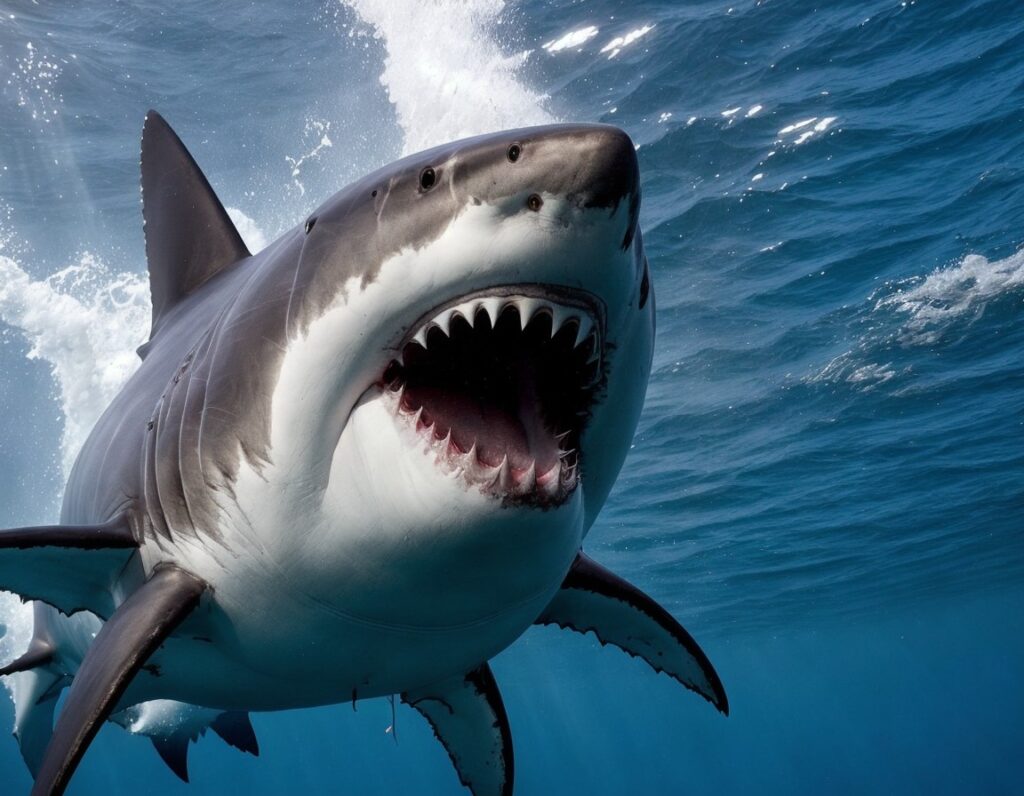The great white shark, one of the most iconic and feared predators of the ocean, has long fascinated scientists and the public alike. One question that frequently arises is: how long do these majestic creatures actually live? In this comprehensive guide, we delve into the lifespan of great white sharks, exploring recent research findings and shedding light on their intriguing biology.
Key Takeaways
- Longevity: Recent studies conducted at the Woods Hole Oceanographic Institution have revealed that great white sharks can live anywhere from 40 to 70 years.
- Delayed Reproduction: These sharks do not reach sexual maturity until several years into their lives. Male great whites typically become sexually mature at around 9-10 years of age.
- Gestation lasts 12-18 months, and litter sizes range from 2-10 pups.

Understanding the Lifespan of Great White Sharks
Great white sharks are apex predators, known for their impressive size, powerful jaws, and keen hunting instincts. They inhabit coastal waters around the world and play a crucial role in maintaining the balance of marine ecosystems.
Despite their formidable reputation, the lifespan of great white sharks has long been a subject of speculation and debate among scientists. Until recently, limited research hindered our understanding of their longevity. However, advancements in technology and techniques have enabled researchers to gain valuable insights into the aging process of these enigmatic creatures.
Recent Studies and Findings
A groundbreaking study conducted by scientists at the Woods Hole Oceanographic Institution has provided compelling evidence regarding the lifespan of great white sharks. By analyzing growth bands in shark vertebrae, researchers were able to estimate the age of individual sharks with unprecedented accuracy.
The study revealed that great white sharks can live for several decades, with some individuals reaching ages of 40 to 70 years or more. This discovery has challenged previous assumptions about the lifespan of these apex predators and highlighted the importance of continued research in marine biology.

Delayed Reproduction and Sexual Maturity
One of the most intriguing aspects of great white shark biology is their delayed reproductive maturity. Unlike many other species of sharks, great whites do not reach sexual maturity until later in life.
Male great white sharks typically become sexually mature at around 9-10 years of age, while females may take even longer to reach reproductive maturity. This delayed onset of reproduction may be linked to the complex social dynamics and ecological roles of these apex predators.
Expert Insights
The findings of our study underscore the remarkable longevity of great white sharks and emphasize the need for conservation efforts to protect these apex predators and the ecosystems they inhabit.
- Dr. Michael Domeier, Lead Researcher, Woods Hole Oceanographic Institution
Lifespan Comparison: Great White Sharks vs. Other Species
To better understand the lifespan of great white sharks, let’s compare it to the lifespans of other marine species:
| Species | Lifespan |
|---|---|
| Great White Shark | 40-70 years or more |
| Blue Whale | 70-90 years |
| Green Sea Turtle | 80-100 years |
| Bowhead Whale | Over 200 years |
Conclusion
In conclusion, the lifespan of great white sharks is a fascinating subject that continues to captivate researchers and enthusiasts alike. Recent studies have shed light on the remarkable longevity of these apex predators, with some individuals living for several decades.
By understanding the factors that influence the lifespan of great white sharks, we can better appreciate the importance of conservation efforts aimed at protecting these iconic creatures and the delicate marine ecosystems they inhabit. Through continued research and awareness, we can ensure a brighter future for the magnificent great white shark.
References
- Klimley, A. Peter. “The Biology of Sharks and Rays.” University of Chicago Press, 2013.
- Domeier, Michael L., and Bruce H. Robison. “Migration patterns of white sharks Carcharodon carcharias tagged at Guadalupe Island, Mexico, and identification of an eastern Pacific shared offshore foraging area.” Marine Ecology Progress Series 370 (2008): 221-237.
- Bruce, Barry D., et al. “A quantitative genetic analysis of hammerhead sharks.” Bulletin of Marine Science 70.3 (2002): 881-894.
